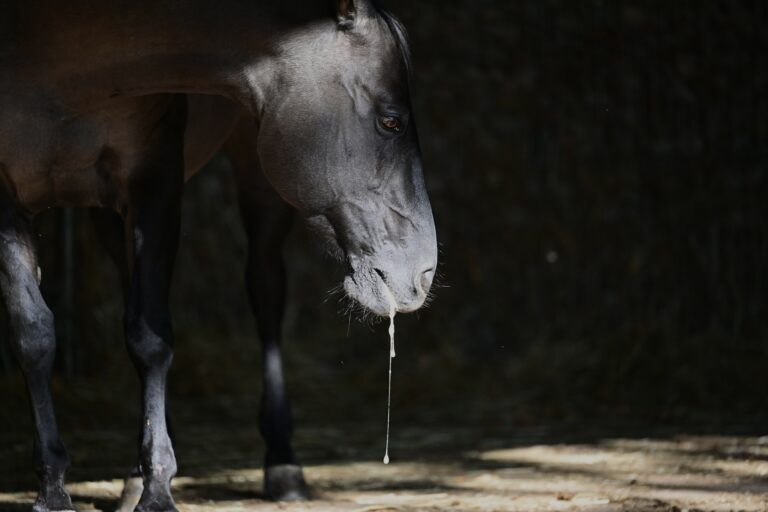
Transport and exercise are common events known to increase horses’ gastrointestinal permeability. Researchers at the University of Guelph evaluated a prebiotic supplement to determine if the product could alter stress-induced hyperpermeability of the gut, also known as leaky gut syndrome.
Study Population
The randomized, partial crossover trial included eight healthy mares. The horses had access to free-choice hay, water, and trace mineral salt. Each morning, the horses were offered 250 grams (0.5 pounds) of a 12% maintenance pellet ration. The horses were randomly assigned to two different feeding groups, with four horses in each. Group A served as controls and did not receive the prebiotic supplement containing Aspergillus oryzae (BioZyme Inc.). Group B received this prebiotic top-dressed onto the pelleted feed once a day. Aspergillus oryzae is a filamentous fungus that has been shown to amplify many probiotic microbes.
Study Methodology
For 28 days, two horses in each feeding group were assigned a stress challenge (a 60-minute trailer ride followed by 30 minutes of free longing in an indoor arena). During the trot segments, the horses’ heart rates remained at or below the anerobic threshold of 150 bpm. The other two horses in each group served as sedentary controls that remained home with no transport and no exercise.
Following this 28-day trial, the horses underwent a 28-day washout period consuming the same diet but without the prebiotic supplement. They were then assigned to the opposite feeding group for another 28 days, and the trial was repeated.
Prior to trailering, the stress-challenged horses were administered iohexol. This substance is a large molecule that doesn’t pass through intestines with normal epithelial integrity. Thus, its presence in the bloodstream indicates some breakdown of the epithelial tight junctions lining the intestinal tract, allowing this compound to pass through from the intestinal lumen. The researchers collected blood samples prior to iohexol administration, prior to trailering, immediately after trailering, immediately following exercise, and then at 1, 2, 4, and 8 hours after exercise.
Study Results
The results are significant: After 28 days of supplementation with Aspergillus oryzae prebiotic, stress-induced gastrointestinal permeability was completely eradicated. The study authors acknowledged they don’t yet know the mechanism by which this occurs, but they speculate it’s associated with modulation of the enteric microbiome to elicit a protective effect. Supplementation with this prebiotic could be a true game-changer for horses undergoing stressful events such as training, travel, and competition.
Reference
McGilloway M, Manley S, Aho A, Heeringa KN, Whitacre L, Lou Y, Squires EJ, Pearson W. Dietary Fermentation Product of Aspergillus Oryzae Prevents Increases in Gastrointestinal Permeability (‘Leaky Gut’) in Horses Undergoing Combined Transport and Exercise. Animals 2023, 13(5):951; https://doi.org/10.3390/ani13050951
Related Reading
- The Subtle Signs of Leaky Gut Syndrome in Horses
- The Equine Gut Microbiome: A Hot Topic
- Supplement to Prevent Leaky Gut Syndrome in Traveling Horses
Stay in the know! Sign up for EquiManagement’s FREE weekly newsletters to get the latest equine research, disease alerts, and vet practice updates delivered straight to your inbox.








